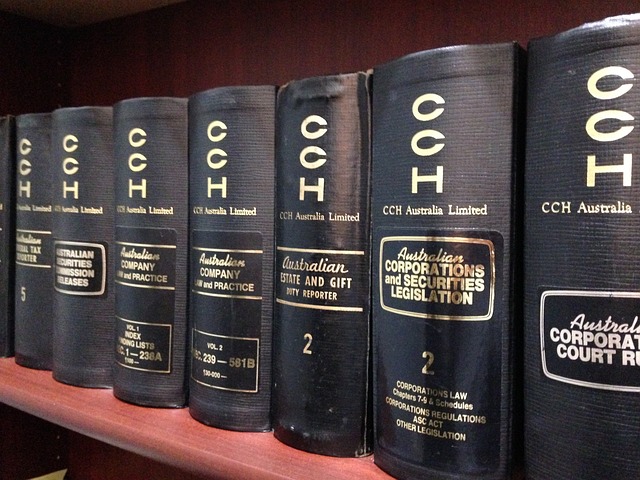The legal services business won through tenders is important to the Australian legal sector. It provides opportunities for law firms of all sizes to compete for government work. It also helps to ensure that the government is getting the best possible value for its money.
The Australian government is a major spender on legal services, with billions of dollars spent each year on external legal counsel. This makes the government a lucrative target for law firms of all sizes.
However, winning government contracts can be a competitive process, and law firms need to be strategic in their approach.
Size of the legal services industry won through tenders
The exact size of the legal services business won through tenders in Australia is difficult to determine, as there is no central database that tracks this information. However, it is estimated that the market for legal services procured through tenders is worth several billion dollars per year.
The Australian government is the largest procurer of legal services in the country, and it typically awards tenders worth hundreds of millions of dollars each year. In addition, state and local governments, as well as large corporations, also regularly procure legal services through tenders.
According to the Legal Services Expenditure Report 2022-23, the Australian Government spent $437.3 million on external legal services in 2021-22, excluding disbursements.
Of this, $380.8 million was spent on legal services that were won through tenders.
The size of the legal services business won through tenders in Australia varies from year to year, but it is typically around $400 million. This represents a significant portion of the overall legal services market in Australia.
| Year | Size of the legal services business won through tenders |
| 2022-23 | $380.8 million |
| 2021-22 | $372.1 million |
| 2020-21 | $430.84 million |
| 2019-20 | $421.7 million |
| 2018-19 | $408.3 million |
Some examples of recent legal services tenders in Australia include:
- The Australian Government Solicitor (AGS) Whole of Australian Government Legal Services Panel (2023-2028) is worth an estimated $400 million per year.
- The New South Wales Government Legal Services Panel (2022-2027) is worth an estimated $250 million per year.
- The Victorian Government Legal Services Panel (2022-2027) is worth an estimated $200 million per year.
The size of the legal services tender market is likely to continue to grow in the coming years, as governments and businesses increasingly seek to procure legal services in a more competitive and transparent manner.
Why is it important to elevate your legal services tender?
There are a number of reasons why it is important to elevate your legal services tender –
1. The Australian government is a major spender on legal services, so there is a lot of business to be won.
2. The government procurement process is becoming increasingly competitive, so law firms need to be strategic in their approach.
3. Winning government contracts can help to enhance a law firm’s reputation and credibility.
OK, these are great reasons to look at legal services tenders, so, let’s look at several things you can do to increase your chances of success.
What are some innovative strategies that law firms can use to elevate their legal services tenders?
There are a number of innovative strategies that law firms can use to elevate their legal services tenders, including:
- Using data analytics to identify and respond to government tender opportunities
- Developing tailored tender responses that address the specific needs of the government client
- Forming consortia with other law firms to increase your capacity and expertise
- Using innovative technologies, such as artificial intelligence and machine learning, to deliver legal services
- Offering value-added services, such as training and development for government staff
By using innovative strategies, law firms can differentiate themselves from the competition and increase their chances of winning government contracts.
Competitive rates are now regarded as a mandatory compliance criteria for legal services tenders.
Competitive rates get your firm in the door.
But your law firm still must successfully compete on a range of non-price criteria, including:
- A relevant and recent track-record of performance to KPIs
- Disclosure and proactive avoidance of conflicts of interest
- Relationship management, including proactive avoidance of negative conflict and a clear ability to drive best-for-client focus
- A high-level of ‘social licence to operate’: diversity (ethnicity, age, sex), environmental, commercial (especially the ability to demonstrate a satisfactory level of tax payments) and social leadership and positive outcomes
- Best-practice governance and management of organisational performance
- Cyber risk management.
How does your law firm successfully compete on non-price criteria?
The most important is ensure that your client has a thorough understanding of your firm’s non-price capabilities.
How do you do this?
The first action is to engage with all levels of decision-makers in your corporate and government clients well before tender probity kicks in. In the ‘business development’ discipline, there are many ways this can be.
The key reason it needs to be done is that you will not normally be able to meet with or even contact your clients’ decision-makers who will be involved in a legal services tender process whilst the tender process is running – and that tender process can start 6 months before (sometimes more) a client issues tender documents to the market.
The next action to take is to prepare your case to be selected, and rigorously test-and-improve it. You don’t need the tender documents to do this: most Client tender documents for legal services have similar non-price criteria to the last tender documents they issued.
You can always use our list above as a starting point.
The critical success factor is to make sure you’re not assuming the client has the required knowledge of your firm’s capabilities and/or positive intent to select your firm. In fact, if you start your test-and-improve sessions from the position that you’ve ‘lost the tender’, then you’ll find issues – real or client perceptions (which are notoriously difficult to change) – that you will need to address.
As we all know in the legal industry, the only sure way to address issues and/or change someone’s perceptions is evidence: cold, hard, independently verifiable facts.
If you do this, you’ll be well positioned for the tender with your client, and already have a lot of content (especially evidence) that you can use in the drafting of your tender responses.
How can Tender Evaluation help with legal services tenders?
We can help your law firm with legal services tenders in a number of ways, including –
Identifying the right opportunities
Our team can help you to identify legal services tender opportunities that are a good fit for your firm’s experience, expertise, and capacity.

Preparing a strong tender response
We can help you to develop a strong tender response that meets all of the client’s requirements and demonstrates that your law firm is the best choice for the job.
Evaluating your chances of success
Tender Evaluation can help you to evaluate your chances of success in a particular tender and to identify areas where you can improve your response.
Providing expert advice
We can provide you with expert advice on all aspects of the tender process, from developing your tender strategy to submitting your tender response.
Prepare your presenters
And if you get to the client presentation stage, we can coach all your presenters to prepare and deliver clear, concise and competitive tender presentations.
With over 30 years experience, Tender Evaluation can provide you with the support and expertise you need to win legal services tenders.
